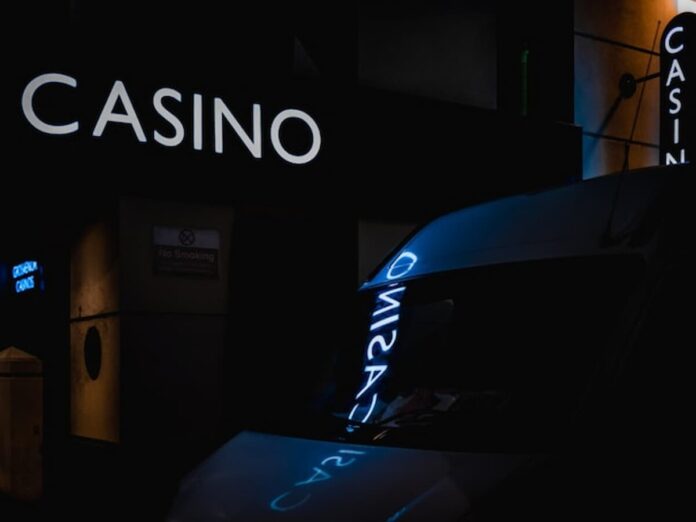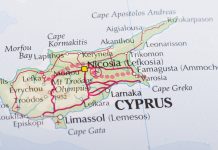
North Cyprus’s economy minister, Olgun Amcaoglu, has promised that the relaxation of casino laws in the unrecognised country will create “at least 28,000 new jobs”, on top of the roughly 40,000 currently employed in the tourism sector.
Amcaoglu indicated that the government plans to grant 32 new casino permits. He described the move as a “great opportunity for the country’s economy,” comparing it to the approach taken in northern Malta. Currently, the country is home to 32 casinos, and the new law will potentially increase that number to over 60.
North Cyprus, officially known as the Turkish Republic of Northern Cyprus, is a country recognised only by Turkey. It lies in the northern part of the island of Cyprus, and a buffer zone separates it from the Republic of Cyprus.
New Law Promises a Boom, Critics See Rise in Gambling Addiction
The North Cyprus government voted to relax casino laws on June 3. The changes include removing previous caps on the number of casino licenses.
It also removes a distance requirement for casinos to be built away from town centers, while reducing that distance to 100 meters from schools.
Other changes include downgrading the ban on Turkish Cypriots entering casinos to a civil offence, punishable by a fine of up to €50. Also, the new law raises the minimum hotel bed requirement from 500 to 750.
Proponents of the new law project a significant boost in tourism employment through the growth of hotels, services, and related industries.
The changes have also raised numerous questions among opponents. While they share the view of an economic boost, the opposition says more casinos would mean a rise in problem gambling and addiction.
Those against the changes pointed to two provisions in particular. Reducing the fine for Turkish Cypriots would drive more people to casinos, which will increase addiction. Also, putting a casino within 100 meters of a school exposes minors to gambling.
Furthermore, opponents argue that as an unrecognized country, North Cyprus could become a hub for money laundering.
Republic of Cyprus: A Contrasting Model
While the North is unrecognized, the Republic of Cyprus (commonly referred to as Cyprus) is a member of the European Union and adheres to the bloc’s strict laws and regulations.
Cyprus has taken a significantly different approach to land-based casinos compared to the North, when it legalized the sector in 2015.
Under Law 124(I)/2015, the country established a tightly regulated monopoly model with one exclusive license for a main resort and casino, plus up to four smaller, supporting satellite casinos. The law also established the Cyprus Gaming and Casino Supervision Commission to oversee the regulation of casino gambling.
The City of Dreams Mediterranean resort in Limassol opened in July 2023 following a €600 million ($686 million) investment. Officials projected about 6,500 additional jobs and an influx of 300,000 extra visitors.
The property’s parent company, Melco Resorts and Entertainment, also operates the satellite locations. It first opened a casino in Nicosia in 2018, followed by casinos in Larnaca, Ayia Napa, and Paphos. The Larnaca location closed during COVID-19 and never reopened.
Regarding online gambling, Cyprus allows only sports betting, with no online casinos. OPAP is the exclusive license holder for retail sports betting and lotteries. It is also one of several licensed Class B online sports betting operators.
AML/CFT Challenges in the North
North Cyprus heavily relies on its regulated retail casino industry. However, regulation of the rest of the gambling market in the unrecognized country is minimal.
While retail sports betting locations must hold a Müşterek Bahis license, many gray-area shops exist. These include unreported satellite branches and venues that operate as “VIP” rooms within hotels or through front-company arrangements. Information is scarce, but estimates are that there are around 50 licensed locations and around 70 unregulated ones.
Meanwhile, no law in North Cyprus regulates online gambling. As a result, offshore platforms have flooded the market, including some operated by organized crime groups.
One high-profile case shed light on the problem. In 2022, the murder of Halil Falyali, a prominent Turkish Cypriot businessman, exposed his $80 million-per-year illegal online betting empire. He allegedly funneled $15 million to public officials in Turkey and Northern Cyprus.
Northern Cyprus is not part of the European Union (EU) or a FATF-supervised jurisdiction. That means the gambling industry, including regulated land-based casinos, is not subject to EU-standard anti-money laundering (AML) or countering the financing of terrorism (CFT) inspections.
That opens the doors for dirty money (as in the Falyali case) to flood the market.











